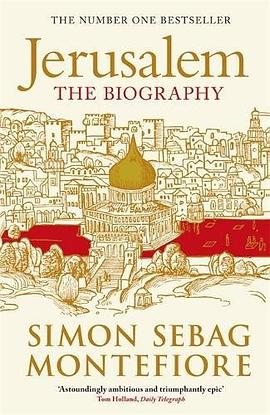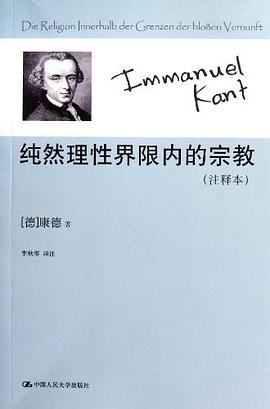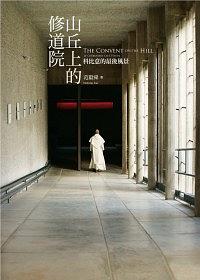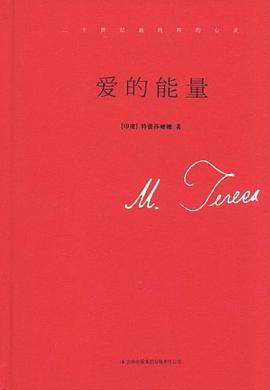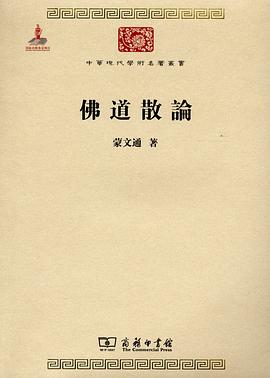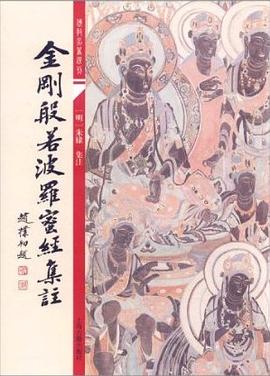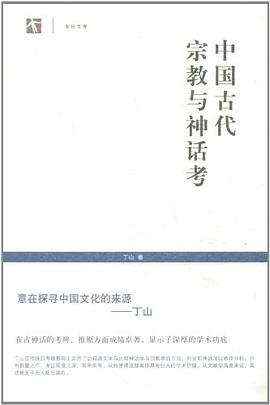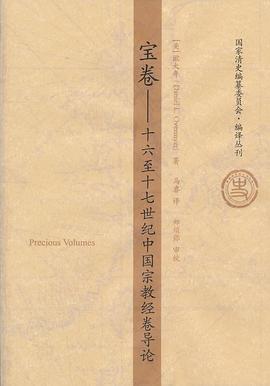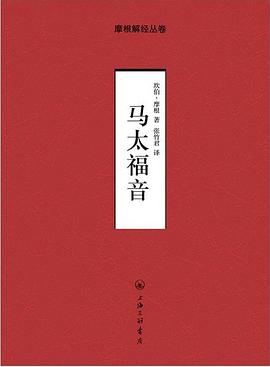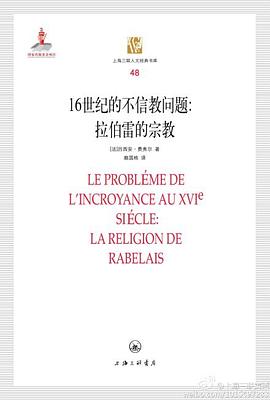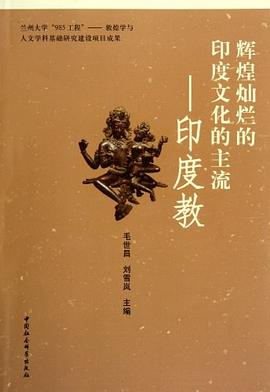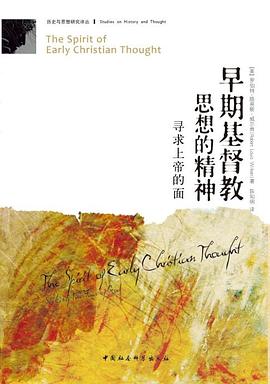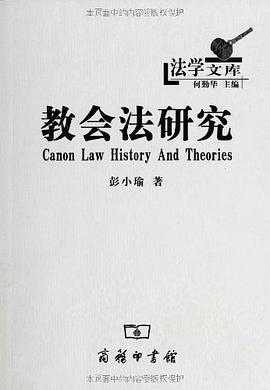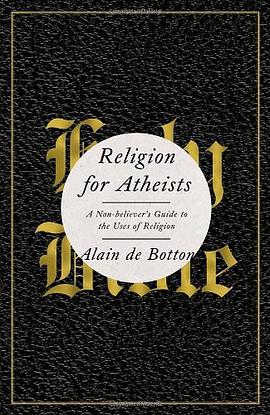

具体描述
From the author of The Consolations of Philosophy, a deeply provocative and useful argument about how we can benefit from the wisdom and power of religion—without having to “believe” in any of it.
What if religions aren’t either all true or all nonsense?
The sterile debate between fundamentalist believers and non-believers is finally advanced by Alain de Botton’s astonishing new book, which boldly argues that the supernatural claims of religion are of course entirely false—and yet religion still has some very important things to teach the secular world.
Religion for Atheists suggests that atheists shouldn’t trash religion, they should steal from it—because the world’s religions are packed with good ideas on how we should live in and arrange our societies. In a highly original and readable tone that blends deep respect with total impiety, de Botton (a non-believer himself) proposes that we should look to religions for insights on, among other topics, how to: build a sense of community, make our relationships last, dampen feelings of envy and inadequacy, escape the 24-hour media world, go traveling, get more out of art, and build new businesses geared around our emotional needs.
For too long non-believers have faced a stark choice between either swallowing lots of peculiar doctrines or doing away with a range of consoling and beautiful rituals and ideas. At last, Alain de Botton, the author of the bestselling The Consolations of Philosophy and How Proust Can Change Your Life , has produced a far more interesting and truly helpful alternative.
作者简介
Q&A with Author Alain De Botton
Q: Is it possible to be a good person without religion?
A: The problem of the man without religion is that he forgets. We all know in theory what we should do to be good. The problem is that in practice, we forget. And we forget because the modern secular world always thinks that it is enough to tell someone something once (be good, remember the poor etc.) But all religions disagree here: they insist that if anyone is to stand a chance of remembering anything, they need reminders on a daily, perhaps even hourly basis.
Q: What do you think of the aggressive atheism we have seen in the past few years?
A: I am an atheist, but a gentle one. I don't feel the need to mock anyone who believes. I really disagree with the hard tone of some atheists who approach religion like a silly fairy tale. I am deeply respectful of religion, but I believe none of its supernatural aspects. So my position is perhaps unusual: I am at once very respectful and completely impious.
Q: Are you nostalgic for the deeply religious past?
A: Like many people, of course I feel nostalgic. How is it possible not to feel nostalgic when you look at 15th frescoes or the rituals of an ancient carnival? However, we have to ask: how should I respond to my nostalgia? My thought is that we can use it creatively, as the basis for a rebirth, for the creation of new things, for the creation of things that later generations will feel nostalgic about... So it frustrates me when people say things like, 'Well, they knew how to build in the 15th century, now it is impossible...' Why! Anything is possible. We should not sigh nostalgically over religion, we should learn from them. We should steal from them.
Q: If we were to replace religion with a secular equivalent, who would be our gurus?
A: We don't need a central structure. We are beyond the age of gurus and inspirational leaders. We are in the age of the Wiki structure. This means that it is up to all of us to look at religion and see what bits we can steal and place into the modern world. We might all contribute to the construction of new temples, not the government, but the concerned, interested individual. The salvation of the individual soul remains a serious problem--even when we dismiss the idea of God. In the 20th century, capitalism has really solved (in the rich West) the material problems of a significant portion of mankind. But the spiritual needs are still in chaos, with religion ceasing to answer the need. This is why I wrote my book, to show that there remains a new way: a way of filling the modern world with so many important lessons from religion, and yet not needing to return to any kind of occult spirituality.
Q: Don't you think that, in order to truly appreciate religious music and art, you have to be a believer--or, at least, don't you think that non-believers miss something important in the experience?
A: I am interested in the modern claim that we have now found a way to replace religion: with art. You often hear people say, 'Museums are our new churches'. It's a nice idea, but it's not true, and it's principally not true because of the way that museums are laid out and present art. They prevent anyone from having an emotional relationship with the works on display. They encourage an academic interest, but prevent a more didactic and therapeutic kind of contact. I recommend in my book that even if we don't believe, we learn to use art (even secular art) as a resource for comfort, identification, guidance and edification, very much what religions do with art.
目录信息
读后感
一、关于读书 爱读书是个好习惯,非常值得提倡。但读书读得多,就一定牛逼吗?读书多的人似乎有一种优越感去瞧不起那些不爱读书的人,去嘲笑那部分人的无知。然而,书太多了,根本读不过来。开卷有益固然不错,但要从茫茫书海中挑出适合自己阅读的书真是件不容易的事儿。个人以...
评分 评分该书透露出德波顿一贯的反思,作为一个无神论者质疑自己的无神论,对其他无神论者很有启迪。宗教对宇宙世界的理解或许是有些偏颇主观的,但是它给予信徒的信仰力量却是可贵的。国内的主流媒体天天都在宣传“幸福感”、“正能量”,用那些“感动中国”来煽情,或许能短时间地刺...
评分最近先后读了乔斯坦 .贾德( Jostein Gaarder)和阿兰 .德波顿( Alan De Botton)的新书。两位都是我喜欢的大众哲学传播人,两本新书碰巧撞车,都在宗教信仰上做文章。 贾德谈宗教,比如神导论,并不算新鲜。风靡全球的《苏菲的世界》里面,小女孩席德的父亲隐入幕后,代理...
评分我基本上也可以算是一个德波顿的粉丝,从第一本《哲学的慰藉》开始,就对这个“英伦才子”的文字格外倾心,后来《旅行的艺术》和《身份的焦虑》也没有让我失望,虽说对于《爱情笔记》这类的文学作品并不感冒,但完全无损于我对于作者的喜爱。正是因为如此,当我看到《写给无神...
用户评价
**第七段:** 在翻阅《Religion for Atheists》这本书之前,我内心深处存在着一种刻板印象:无神论者与宗教,是两个完全没有交集的世界。前者基于理性,后者依赖信仰。然而,作者以一种极其精妙的方式,打破了我原有的认知框架,让我看到了两者之间并非绝对的对立,反而存在着许多共通的领域和可以相互借鉴的智慧。《Religion for Atheists》这本书,并非是在鼓吹某种新的信仰,而是以一种冷静、客观、甚至可以说是充满人文关怀的笔触,带领我深入探究宗教的核心功能,以及这些功能在非宗教语境下同样具有的意义。我印象最为深刻的是作者关于“道德”和“伦理”的讨论。他并没有去纠结上帝是否存在,而是着重分析了宗教是如何在人类文明的早期,为社会提供了一套基本的道德准则,帮助人们区分善恶,维护秩序。这让我意识到,即使我们不依赖宗教的教义,我们依然可以从人类漫长的历史中,学习如何构建一个更加公正、和谐的社会。书中关于“社群”的探讨,也让我产生了强烈的共鸣。宗教的一个重要作用,就是将一群拥有共同目标和价值观的人凝聚在一起,形成强大的社群感和归属感。在现代社会,个体往往面临着孤独和疏离。《Religion for Atheists》这本书,促使我去思考,我们是否可以在不依附于宗教的情况下,主动地去构建和维护属于自己的社群?我们如何才能在群体中找到归属,同时又不失去个体的独立性?这种思考,让我开始更加重视与朋友、家人以及志同道合者的联系,并尝试去建立更深层次的连接。而“仪式”这个概念的重新解读,更是让我眼前一亮。作者并没有将仪式仅仅局限于宗教的范畴,而是将其看作是生活中能够带来秩序、慰藉和连接的活动。这让我重新审视了自己生活中的一些日常行为,例如每周与家人共进晚餐,或者是在某个重要的纪念日进行一次深刻的自我回顾。这些行为,如果被赋予了特定的意义,是否也能成为一种“仪式”,帮助我巩固情感,梳理思绪,让我的生活更加充实和有意义?这本书,对我而言,更像是一次关于“如何活得更充实、更有意义”的哲学探索。
评分**第九段:** 《Religion for Atheists》这本书,如同一场思想的盛宴,为我这个坚定的无神论者带来了前所未有的启发。我一直认为,宗教是建立在对超自然力量的信仰基础之上,而我所信奉的是理性与科学。因此,当看到这本书的标题时,内心是充满好奇,但也夹杂着一丝疑虑:一本为无神论者写的宗教,究竟能讲些什么?然而,随着阅读的深入,我发现作者并没有试图将我“拉回”任何一种具体的信仰体系,而是以一种极其智慧和开放的方式,引导我重新审视“宗教”这个概念。他巧妙地将宗教的本质,剥离出神圣的教义和超自然的信仰,而是聚焦于它在人类社会中所扮演的“功能性”角色,例如构建意义、提供社群、以及形成道德规范等等。我尤其欣赏作者在书中关于“意义”的探讨。宗教往往能够为个体生命提供一个宏大的叙事,一个超越个人生死的终极目标,这在很大程度上能够缓解人们对死亡的恐惧,以及对生命短暂的焦虑。而对于无神论者来说,如何在充满不确定性的世界中找到并创造属于自己的意义,就成了一个至关重要的问题。《Religion for Atheists》这本书,并没有直接给出答案,而是提供了一种深刻的思考工具。它鼓励我们去审视那些让我们感到生命有价值的时刻,去反思那些让我们产生强烈情感连接的人和事,去思考我们想要在这个世界上留下怎样的印记。这种自我探索的过程,本身就充满了力量和方向感,让我不再仅仅是漫无目的地漂泊。书中对“社群”的论述,也让我深受启发。宗教最强大的力量之一,在于它能够将一群拥有共同目标和价值观的人凝聚在一起,形成强大的社群感和归属感。在现代社会,个体往往面临着孤独和疏离。《Religion for Atheists》这本书,促使我去思考,我们是否可以在不依附于宗教的情况下,主动地去构建和维护属于自己的社群?我们如何才能在群体中找到归属,同时又不失去个体的独立性?这种思考,让我开始更加重视与朋友、家人以及志同道合者的联系,并尝试去建立更深层次的连接。而“仪式”这个概念的重新解读,更是让我耳目一新。作者并没有将仪式仅仅局限于宗教的范畴,而是将其看作是生活中能够带来秩序、慰藉和连接的活动。这让我重新审视了自己生活中的一些日常行为,例如每周与家人共进晚餐,或者是在某个重要的纪念日进行一次深刻的自我回顾。这些行为,如果被赋予了特定的意义,是否也能成为一种“仪式”,帮助我巩固情感,梳理思绪,让我的生活更加充实和有意义?
评分**第四段:** 当我拿到《Religion for Atheists》这本书时,内心是充满疑惑的。无神论者还需要宗教吗?这似乎是一个自相矛盾的命题。然而,作者并没有试图将我拉回任何一种传统的信仰体系,而是以一种非常开放和探究的态度,引导我去思考“宗教”的更深层次含义。他将宗教视为一种人类的普遍现象,一种关于如何理解世界、如何生活、如何与他人建立联系的复杂系统。书中关于“意义”的探讨,让我印象最为深刻。宗教往往能够为个体提供一个宏大的叙事,一个超越个人生死的终极目标。而对于无神论者来说,如何在这个充满不确定性的世界中找到并创造属于自己的意义,就成了一个核心的课题。《Religion for Atheists》并没有直接给出答案,而是提供了一种审视和探索的方法。作者鼓励我们去观察那些让我们感到生命有价值的时刻,去反思那些让我们产生强烈情感连接的人和事,去思考我们想要在这个世界上留下怎样的印记。这种过程,虽然没有神灵的指引,但同样充满了力量和方向感。我开始意识到,作者所说的“宗教”,并非仅仅是指教义和神学,而是指那些能够为我们提供方向、归属感、以及应对生命挑战的系统。他对“社群”的论述,也让我产生了深刻的共鸣。宗教的强大之处在于它能够将一群人聚集在一起,形成一种强大的集体认同感和归属感。在现代社会,这种集体认同感似乎越来越难以获得。《Religion for Atheists》这本书,促使我去思考,即使我们不通过宗教来寻找社群,我们是否也可以主动地去构建和维护属于自己的社群?我们如何才能在群体中找到归属,同时又不失去个体的独立性?这种思考,让我开始更积极地去参与一些我所关注的社群活动,去与志同道合的人建立更深的联系。书中的“仪式”的讨论,也让我眼前一亮。作者并没有将仪式仅仅局限于宗教的范畴,而是将其看作是生活中能够带来秩序、慰藉和连接的活动。这让我重新审视了自己生活中的一些日常行为,例如每周与家人共进晚餐,或者是在某个重要的纪念日进行一次深刻的自我回顾。这些行为,如果被赋予了特定的意义,是否也能成为一种“仪式”,帮助我巩固情感,梳理思绪,让我的生活更加充实和有意义?
评分**第八段:** 初次接触《Religion for Atheists》这本书,我内心是充满好奇和一丝怀疑的。我一直认为,无神论与宗教是截然不同的两种存在方式,前者是建立在理性思考之上,而后者则依赖于信仰。然而,这本书却以一种非常独特且引人入胜的方式,打破了我的这种二元对立的思维。作者并没有试图将我“拉回”任何一种传统的宗教体系,而是以一种开放、批判、同时又充满理解的态度,引导我重新审视“宗教”这个概念的深层含义。他将宗教视为一种人类普遍的社会结构和精神需求,剥离掉其中超自然的元素,而是关注其在构建意义、提供社群、以及形成道德规范等方面的核心功能。我尤其欣赏作者在书中关于“意义”的探讨。宗教往往能够为个体生命提供一个宏大的叙事,一个超越个人生死的终极目标。而对于无神论者来说,如何在充满不确定性的世界中找到并创造属于自己的意义,就成了一个至关重要的问题。《Religion for Atheists》这本书,并没有直接给出答案,而是提供了一种深刻的思考工具。它鼓励我们去审视那些让我们感到生命有价值的时刻,去反思那些让我们产生强烈情感连接的人和事,去思考我们想要在这个世界上留下怎样的印记。这种自我探索的过程,本身就充满了力量和方向感,让我不再仅仅是漫无目的地漂泊。书中对“社群”的论述,也让我深受启发。宗教最强大的力量之一,在于它能够将一群拥有共同目标和价值观的人凝聚在一起,形成强大的社群感和归属感。在现代社会,个体往往面临着孤独和疏离。《Religion for Atheists》这本书,促使我去思考,我们是否可以在不依附于宗教的情况下,主动地去构建和维护属于自己的社群?我们如何才能在群体中找到归属,同时又不失去个体的独立性?这种思考,让我开始更加重视与朋友、家人以及志同道合者的联系,并尝试去建立更深层次的连接。而“仪式”这个概念的重新解读,更是让我耳目一新。作者并没有将仪式仅仅局限于宗教的范畴,而是将其看作是生活中能够带来秩序、慰藉和连接的活动。这让我重新审视了自己生活中的一些日常行为,例如每周与家人共进晚餐,或者是在某个重要的纪念日进行一次深刻的自我回顾。这些行为,如果被赋予了特定的意义,是否也能成为一种“仪式”,帮助我巩固情感,梳理思绪,让我的生活更加充实和有意义?
评分**第六段:** 《Religion for Atheists》这本书,以一种出人意料的温柔和智慧,解开了我对于“宗教”这个词的诸多束缚。我一直以为,作为一名无神论者,宗教对我而言,不过是历史长河中的一段插曲,是人类在蒙昧时期对未知的一种寄托。然而,作者并没有试图将我“拉回”某个信仰,而是邀请我以一种全新的视角,去审视宗教所蕴含的、那些可以超越信仰界限的普遍价值。他巧妙地将宗教的本质,剥离出超自然的神性,而是聚焦于它在人类社会中所扮演的“功能性”角色。我尤其欣赏作者关于“意义”的探讨。宗教往往能够为个体生命提供一个宏大的叙事,一个超越个人生死的终极目标。而对于无神论者来说,如何在这个充满不确定性的世界中找到并创造属于自己的意义,就成了一个核心的课题。《Religion for Atheists》并没有直接给出答案,而是提供了一种深刻的思考框架。它鼓励我们去审视那些让我们感到生命有价值的时刻,去反思那些让我们产生强烈情感连接的人和事,去思考我们想要在这个世界上留下怎样的印记。这种自我探索的过程,本身就充满了力量和方向感,让我不再仅仅是漫无目的地漂泊。书中对“社群”的论述,也让我深受启发。宗教最强大的力量之一,在于它能够将一群拥有共同信仰的人凝聚在一起,形成一种强大的集体认同感和归属感。在现代社会,个体往往面临着孤独和疏离。《Religion for Atheists》这本书,促使我去思考,即使我们不通过宗教来寻找社群,我们是否也可以主动地去构建和维护属于自己的社群?我们如何才能在群体中找到归属,同时又不失去个体的独立性?这种思考,让我开始更加积极地去参与一些我所关注的社群活动,去与志同道合的人建立更深的联系,这让我感到一种久违的温暖和支持。而“仪式”这个概念的重新解读,更是让我耳目一新。作者并没有将仪式仅仅局限于宗教的范畴,而是将其看作是生活中能够带来秩序、慰藉和连接的活动。这让我重新审视了自己生活中的一些日常行为,例如每周与家人共进晚餐,或者是在某个重要的纪念日进行一次深刻的自我回顾。这些行为,如果被赋予了特定的意义,是否也能成为一种“仪式”,帮助我巩固情感,梳理思绪,让我的生活更加充实和有意义?这本书,对我而言,更像是一次关于“如何活得更好”的哲学启蒙。
评分**第一段:** 初次翻开《Religion for Atheists》这本书,我内心确实是带着一丝好奇和几分 skepticism。我一直以来都认为自己是一个坚定的无神论者,对于任何形式的宗教,我都倾向于将其视为一种历史遗留下的文化现象,或者是人类寻求慰藉、解释未知的一种方式。然而,这本书的标题本身就极具挑衅性——“为无神论者而写的宗教”。这让我不禁思考,作者究竟想传达怎样的信息?是企图把我拉回信仰的怀抱,还是在探索一种非传统的、摆脱了超自然信仰的“宗教”体验?阅读的过程中,我发现作者并非是试图说服读者去相信某个神灵,而是通过一种更加宏观和哲学的视角,去审视宗教的起源、功能以及其对人类社会和个体心理的影响。我开始意识到,许多宗教的核心理念,例如社群的凝聚力、道德准则的建立、仪式感的意义、以及对终极问题的追问,并非一定需要以超自然的信仰为载体。作者似乎在引导我们去发掘那些存在于宗教结构中的、与人性深层需求息息相关的元素,并思考如何在不依附于神明的情况下,依然能够从中汲取力量,构建有意义的生活。这种解读让我对“宗教”这个词的理解发生了微妙的转变,不再仅仅局限于狭隘的信仰层面,而是扩展到了更广泛的人文关怀和价值探索。我开始注意到,书中对于“仪式”的讨论,并非仅仅是宗教性的祭祀,而是延伸到了我们日常生活中那些具有象征意义的活动,比如庆典、纪念日,甚至是我们与家人朋友相聚时的某些固定模式,它们都承载着情感的传递和关系的维系,这让我产生了强烈的共鸣。同时,作者在探讨宗教如何提供“社群感”时,也让我反思了现代社会中个体孤独的问题,以及我们如何主动地去构建和维护属于自己的“社群”。总而言之,这本书并非是在推销一种新的信仰,而是在邀请读者以一种全新的、批判性的、同时又充满理解的态度,去重新审视那些古老而强大的文化力量,并在其中寻找属于自己的价值和意义。
评分**第十段:** 《Religion for Atheists》这本书,对我而言,更像是一次深刻的自我发现之旅,而非对宗教的推广。我一直以来都坚信自己是一名无神论者,对任何形式的宗教都抱持着一种疏离和批判的态度。然而,作者以一种极为细腻和富有洞察力的方式,引导我看到了宗教背后所蕴含的、人类普遍的精神需求,并思考如何在非宗教的语境下满足这些需求。这本书最吸引我的地方在于,它并没有试图将我“拉回”某个特定的信仰体系,而是以一种解构和重塑的方式,让我重新认识“宗教”这个概念。作者巧妙地将宗教的本质,从超自然的教义和神圣的信仰中剥离出来,而是聚焦于它在人类社会中所扮演的“功能性”角色。我尤其对书中关于“意义”的探讨印象深刻。宗教往往能够为个体生命提供一个宏大的叙事,一个超越个人生死的终极目标,这在很大程度上能够缓解人们对死亡的恐惧,以及对生命短暂的焦虑。而对于无神论者来说,如何在充满不确定性的世界中找到并创造属于自己的意义,就成了一个至关重要的问题。《Religion for Atheists》这本书,并没有直接给出答案,而是提供了一种深刻的思考工具。它鼓励我们去审视那些让我们感到生命有价值的时刻,去反思那些让我们产生强烈情感连接的人和事,去思考我们想要在这个世界上留下怎样的印记。这种自我探索的过程,本身就充满了力量和方向感,让我不再仅仅是漫无目的地漂泊。书中对“社群”的论述,也让我深受启发。宗教最强大的力量之一,在于它能够将一群拥有共同目标和价值观的人凝聚在一起,形成强大的社群感和归属感。在现代社会,个体往往面临着孤独和疏离。《Religion for Atheists》这本书,促使我去思考,我们是否可以在不依附于宗教的情况下,主动地去构建和维护属于自己的社群?我们如何才能在群体中找到归属,同时又不失去个体的独立性?这种思考,让我开始更加重视与朋友、家人以及志同道合者的联系,并尝试去建立更深层次的连接。而“仪式”这个概念的重新解读,更是让我耳目一新。作者并没有将仪式仅仅局限于宗教的范畴,而是将其看作是生活中能够带来秩序、慰藉和连接的活动。这让我重新审视了自己生活中的一些日常行为,例如每周与家人共进晚餐,或者是在某个重要的纪念日进行一次深刻的自我回顾。这些行为,如果被赋予了特定的意义,是否也能成为一种“仪式”,帮助我巩固情感,梳理思绪,让我的生活更加充实和有意义?
评分**第五段:** 《Religion for Atheists》这本书,以其独特的视角,彻底颠覆了我对“宗教”一词的固有认知。作为一名坚定的无神论者,我一直认为宗教是与我无关的,是建立在对超自然力量的信仰基础之上的。然而,这本书却以一种冷静、客观、甚至可以说是充满同情的笔触,引导我看到了宗教作为一种人类普遍需求的体现,以及它所能提供的、超越信仰本身的价值。作者并没有试图说服我转向任何一种具体的宗教,而是鼓励我以一种批判性的、同时又开放的心态,去审视宗教的运作机制和它所承载的意义。我非常欣赏作者在书中对“道德”和“伦理”的深入剖析。他指出,宗教在漫长的历史中,为人类社会提供了一套基本的道德规范,帮助人们区分善恶,协调人际关系。即使我们不相信宗教的神圣性,我们依然可以从这些古老的智慧中汲取养分,构建我们自己的道德体系。这让我开始反思,我所遵循的道德原则,究竟是从何而来?它们是否也有着深刻的人类社会起源?书中关于“社群”的讨论,也引起了我强烈的共鸣。宗教最显著的功能之一,就是将一群拥有共同信仰的人凝聚在一起,形成强大的社群感和归属感。在现代社会,个体往往面临着孤独和疏离。《Religion for Atheists》这本书,促使我去思考,即使我们不通过宗教来寻找社群,我们是否也可以主动地去构建和维护属于自己的社群?我们如何才能在群体中找到归属,同时又不失去个体的独立性?这种思考,让我开始更加重视与朋友、家人以及志同道合者的联系。而“仪式”这个概念的重新解读,更是让我耳目一新。作者并没有将其局限于宗教的范畴,而是将其看作是生活中能够带来秩序、慰藉和连接的活动。这让我重新审视了自己生活中的一些日常行为,例如每周与家人共进晚餐,或者是在某个重要的纪念日进行一次深刻的自我回顾。这些行为,如果被赋予了特定的意义,是否也能成为一种“仪式”,帮助我巩固情感,梳理思绪,让我的生活更加充实和有意义?这本书就像一面镜子,让我得以更深刻地认识人类的普遍需求,以及如何在不依赖超自然力量的情况下,依然能够找到生命的意义和价值。
评分**第三段:** 《Religion for Atheists》这本书,对于我这样一个在科学和理性道路上行走多年的人来说,无疑是一个意外的惊喜。我一直认为,信仰与理性是两种截然不同的道路,甚至可以说是相互排斥的。然而,这本书却巧妙地架起了一座桥梁,让我看到了宗教之中蕴含的、可以被非信徒借鉴的深刻智慧。作者并非在鼓吹一种新的信仰,而是以一种解构和重塑的方式,让我们重新审视“宗教”这个概念。他鼓励我们剥离掉那些超自然的、神圣的元素,去关注宗教背后所承载的、真正与人类需求相关联的普世价值。书中关于“社群”的讨论,尤其让我感到触动。宗教往往能够将一群拥有共同信仰的人凝聚在一起,形成强大的社群力量。而在这个日益原子化的现代社会,个体之间的联系似乎越来越弱。作者引导我们去思考,即使我们不认同宗教的教义,我们依然可以借鉴宗教构建社群的方式,去主动地建立和维护属于自己的社交网络,去寻找那些能与我们产生共鸣的人。此外,书中对于“仪式感”的探讨,也让我受益匪浅。很多宗教仪式都充满了象征意义,能够帮助信徒在情感上产生连接,并在特定的时刻获得心理上的慰藉。作者提出,即使是没有宗教信仰的人,也可以通过创造和参与具有意义的“仪式”,来丰富自己的生活,增强内心的稳定感。这让我开始审视自己生活中的一些习惯,比如每年一次的家庭旅行,或者是在重要时刻进行的自我反思,这些是否也算是一种“仪式”?它们在多大程度上帮助我巩固了情感,或者为我带来了内心的平静?这种视角让我开始重新认识到,那些看似平凡的重复性行为,如果能够被赋予深刻的意义,就能成为我们生活中强大的支撑。作者在书中展现出的,是一种对人类精神需求的深刻理解,以及一种将古老智慧与现代生活相结合的创新能力。他让我们明白,即使我们不信神,我们依然可以从“宗教”这个概念中,找到构建有意义、有连接、有秩序的生活的可能性。
评分**第二段:** 阅读《Religion for Atheists》的过程,更像是一场智识上的探险,而非一场说教。作者以一种冷静而富有洞察力的笔触,解构了我们对“宗教”的刻板印象。我原本以为,这本书会充斥着对宗教教义的分析,或者历史上的神话故事,但事实远非如此。作者的重点,更多地放在了宗教作为一种社会结构、一种人类行为模式、一种价值体系的运作机制上。他敏锐地捕捉到,即使是那些宣称自己是无神论者的人,在内心深处也可能存在着对某些“超越性”的渴望,对意义的追寻,对归属感的需要。这种渴望,在宗教中找到了寄托,但同样可以在其他领域得到满足。我印象深刻的是作者关于“伦理”和“道德”的讨论。他并没有去探讨上帝是否真实存在,而是深入分析了宗教是如何在漫长的历史中,为人类社会提供一套基本的道德框架,如何塑造了我们的善恶观念。这让我开始思考,即便我们不相信宗教的超自然力量,我们依然可以从这些古老的智慧中汲取养分,去构建我们自己的道德指南。更重要的是,作者强调了“意义”的创造。宗教往往能为个体生命提供一个宏大的叙事,一个超越个人生死的目的。而对于无神论者来说,如何在这个充满不确定性的世界中找到并创造属于自己的意义,就显得尤为重要。《Religion for Atheists》这本书,并没有直接给出答案,而是提供了一种思考的工具,一种审视自身价值体系的方法。它鼓励我们去观察那些我们生活中最珍视的事物,去反思我们为什么会做出某些选择,去思考我们希望为这个世界留下什么。这种自我探索的过程,本身就充满了力量。我开始留意到,书中对于“仪式”的重新定义,让我对日常生活中一些看似平凡的活动有了新的认识。比如,与家人共进晚餐,为一个重要的项目完成后的庆祝,甚至是一段长时间的独处冥想,这些都可以被视为一种“仪式”,它们帮助我们巩固情感,梳理思绪,赋予生活以秩序和节奏。这种从宗教的框架中抽离出其功能性元素,并在更广泛的社会和个人层面进行解读的做法,让我耳目一新,也为我提供了一种更具弹性的思维方式来理解人类文化和自身存在的本质。
评分开头和结束章比较闷,中间比如教育很好看,谈艺术那部分太短了,再展开点就好。虽然作者说一书之力绵薄,他的写作保持连贯关注人的内在世界,观点也在不断重申,是德波顿式的“宗教”
评分开头和结束章比较闷,中间比如教育很好看,谈艺术那部分太短了,再展开点就好。虽然作者说一书之力绵薄,他的写作保持连贯关注人的内在世界,观点也在不断重申,是德波顿式的“宗教”
评分拿这本书做精读的。书本身对我的启发也特别大!
评分这本书是注定的两边不讨好。作者对宗教抱持着疏离的态度,从实用主义出发,这个我们可以学、那个我们可以用,十有八九遭到各大教派反感。而从无神论者的角度看,作者说了很多宗教形式上的好处,而完全没有谈及教义可能对多元化社会造成的负面影响,就得到了“我们不能没有宗教”的结论,让人觉得实在不能接受。但如果当成听一个特别爱琢磨事儿的无神论者跟你饭后唠唠磕,这书还是挺好看的。给我印象最深的一点是,他提到无神论者比有神论者更乐观,他们相信随着科技和社会的发达,美好未来是可以在现世实现的;而有神论者则觉得这是不可能的事,转而把希望放在死后承诺的永恒。如果人生态度的出发点就如此不同。。。我真的觉得无神论者和有神论者没法沟通唉。但求和平共处,政教分离= =
评分:无
相关图书
本站所有内容均为互联网搜索引擎提供的公开搜索信息,本站不存储任何数据与内容,任何内容与数据均与本站无关,如有需要请联系相关搜索引擎包括但不限于百度,google,bing,sogou 等
© 2026 book.quotespace.org All Rights Reserved. 小美书屋 版权所有

